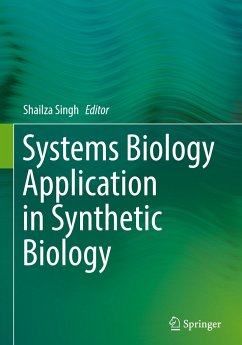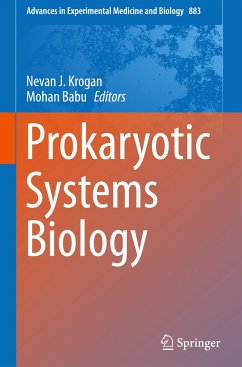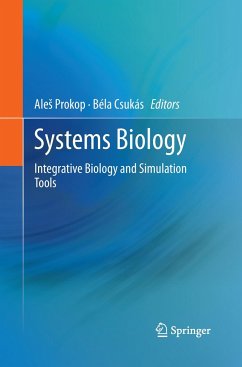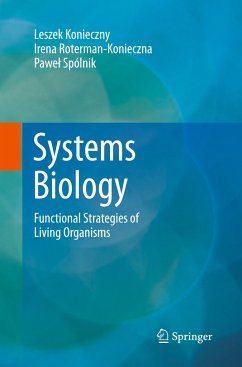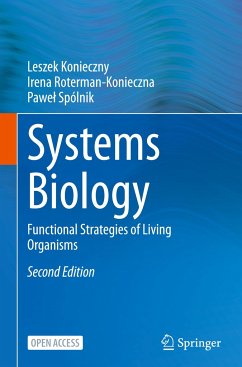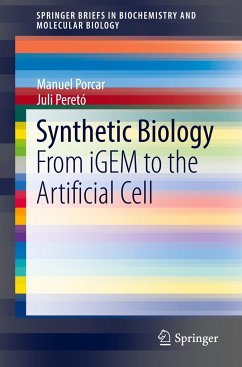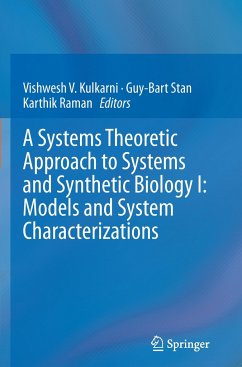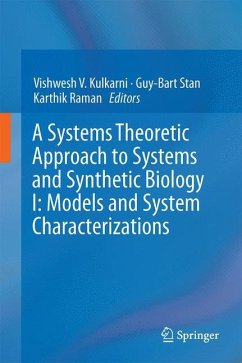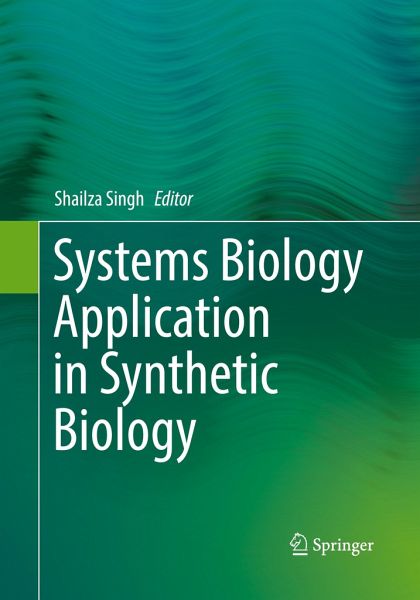
Systems Biology Application in Synthetic Biology
Versandkostenfrei!
Versandfertig in 6-10 Tagen
105,99 €
inkl. MwSt.

PAYBACK Punkte
53 °P sammeln!
This book introduces students tomethods that will help them understand behaviour in terms of cellularcomponents and their interactions in non-intuitive ways, which calls for aninterdisciplinary approach combining mathematical, chemical, computational andbiological strategies. Tibor Ganti was one of the early pioneers whoproposed a theoretical framework to understand living principles in terms ofchemical transformation cycles and their coupling. The twenty-first centurythen brought with it a novel 'systems' paradigm, which shone new light on allprevious work and was accompanied by numerous impl...
This book introduces students tomethods that will help them understand behaviour in terms of cellularcomponents and their interactions in non-intuitive ways, which calls for aninterdisciplinary approach combining mathematical, chemical, computational andbiological strategies. Tibor Ganti was one of the early pioneers whoproposed a theoretical framework to understand living principles in terms ofchemical transformation cycles and their coupling. The twenty-first centurythen brought with it a novel 'systems' paradigm, which shone new light on allprevious work and was accompanied by numerous implications for the way weconceive of chemical and biological complexity today.
This book seeks to equip students totake advantage of any field that investigates living systems. Based on aconceptualisation of science-oriented branches, engineering-oriented branchesand biology as astoundingly complex fields, those structures laden withbiochemical detail encompass a deeper theory unifying our knowledge of designedsystems.
Readers will be pleasantly surprised athow lucidly the topics are presented. The book offers an indispensable resourcefor students and professionals working in systems and synthetic biology or anyof the various related fields of research.
This book seeks to equip students totake advantage of any field that investigates living systems. Based on aconceptualisation of science-oriented branches, engineering-oriented branchesand biology as astoundingly complex fields, those structures laden withbiochemical detail encompass a deeper theory unifying our knowledge of designedsystems.
Readers will be pleasantly surprised athow lucidly the topics are presented. The book offers an indispensable resourcefor students and professionals working in systems and synthetic biology or anyof the various related fields of research.



